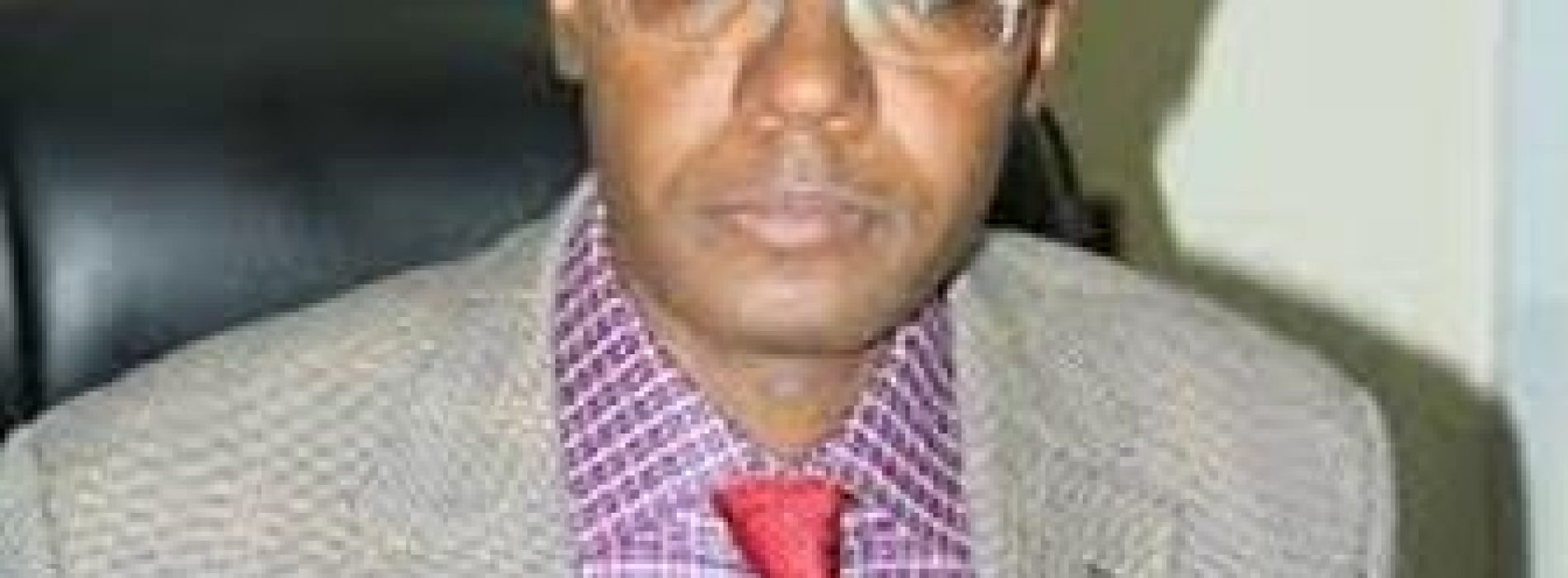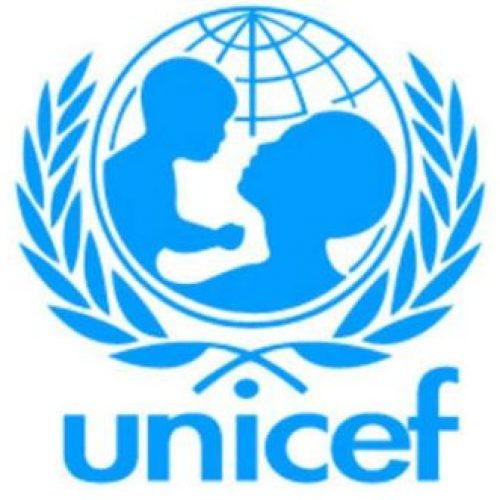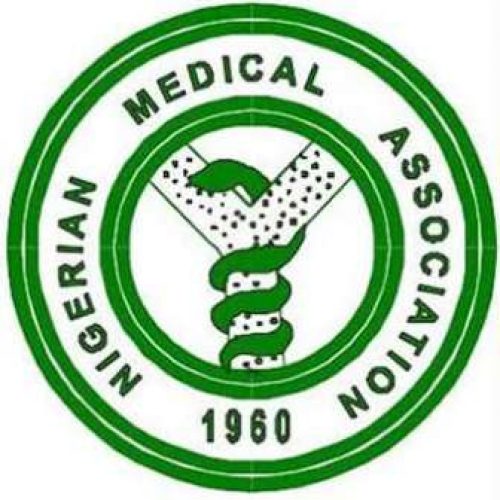Our donor funds enough to care for all Nigerians with HIV – NACA DG
Funds from the Global Fund, US President’s Emergency Plan For AIDS Relief (PEPFAR), among others, are enough to place no fewer than 3.2 million Nigerians with HIV on treatment, Director-General, National Agency for the Control of AIDS (NACA) Dr Sani Aliyu, has revealed. In this chat with health correspondents and editors at an Annual Media Interactive Dinner in Abuja recently Dr Aliyu disclosed that donor funds received by the Federal Government of Nigeria towards the control of HIV/AIDS is actually equivalent to the country’s entire annual budget for health. Our Bureau Chief, Marcus Fatunmole, who was at the event, reports: Excerpts:
What are the roles of the media in HIV national response?
Your role has to do with making sure that HIV continues to be visible in the national consciousness. I am sure you are aware that Nigeria is developing some sort of notoriety when it comes to HIV. The first one is that we are covering only about a third of people requiring treatment for HIV. We’ve just crossed the one million mark, which is great. We have another two million, possibly to go, which is a huge issue.
The second issue is that of prevention of mother-to-child transmission. One in four babies born with HIV in the world is a Nigerian child…
The third is the issue of funding. We have over a million people on treatment. We are funding from domestic resources only five percent. Only 60,000 of a million and fifty thousand Nigerians on treatment are currently being funded by the government of Nigeria, through the Federal Government.
What contributions are states in the country making towards the national response?
We have states that are at the moment not funding anything at all that has to do with HIV. They have HIV in their budgets, but they are not funding HIV. We have states with very high prevalence that their response is driven by foreign donors 100 percent.
We know this money is not going to continue to come in. If you look at years back, at the beginning of the response in early 2002-2003 onwards, the money coming in from US was about $500 million. It has now reduced to about $350 million. I can tell you that both US and the Global Fund are actually slowing down and they are taking a back seat.
When they take the back seat, who is going to take the driver’s seat? The role of the media is to make sure that somebody occupies that driver’s seat, takes over and drives the response to make sure that our fellow citizens that need to be on treatment are on treatment, and those that are on treatment continue to be on treatment.
I have said this time without number that health is a right. It is a universal right. We all have a right to good health. When it comes to HIV, you can substitute that right to health with right to medication, because it is the antiretroviral that allows people to maintain healthy live. Having access to those antiretroviral drugs is really essential. At the moment, most of the response is driven by commodities.
In 2015, value of the commodities brought into Nigeria was about $150 million. The contribution of the domestic response was $1.5 million. So, only one percent of the money spent on commodities in 2016 in Nigeria came from domestic resources. 99 percent of these came from our donor friends, US government, PEPFAR and Global Fund. That put us in a really difficult position.
How can the country address this challenge?
We can address this by looking at the overall response itself and insisting on a different way of working. A different way of working that will ensure sustainability. We’ve just finished a meeting this evening where we went through our Taraba and Abia experience. And, what was very obvious was when we started in 2015, it was working extremely well. Why? It was because the resources were there. The figures, the performance was not different from the US and Global Fund programme. But, it was being operated at a much lower level when it came to us. For the Abia and Taraba programme, with $10 million, which is about N3.5 billion, we can actually put 60,000 patients on treatment, using the Taraba and Abia model.
This means that with $100million, you can put 600,000 people. How many people do we have at the moment requiring treatment? It is about 3.2million. So, what I’m trying to say is that let us start insisting on a different way of working. The amount of money coming into the country is actually enough if we have a very cost-effective programme to look after everybody.
The reason it is not enough is that the module used by our donor partners is a very expensive module. They will come in, they will have huge salaries, they will have accommodation etc. So, a lot of that money goes into things that are not direct clinical care. The first thing is to ask these critical questions: why are you spending so much money on us Nigerians? Is it for altruistic reasons? If it is for altruistic reasons, where is the plan? If it is for altruistic reasons, we can actually double or triple the number of people on treatment, using a different module.
How can the media come in in this regard?
The media come in here in terms of pushing from the domestic front to show some commitment. For us to be able to negotiate, as they say, a beggar has no choice. For us, as a country, for us to be able to negotiate, we think this is the best module that will work in Nigeria. We think this is the cheaper module. To get everybody on treatment, you need to work with us. At the same time, we need to put some money forward and look after our own. That is where I think media really come in.
Where do you see Nigeria HIV response in 2018?
2018 will be a make or break when it comes to long-term sustainability of HIV programme. This is because in 2018, donors like Global Fund will stop listening to us, if we do not put money where our mouth is. We’ve already worked very hard with Global Fund, I’m sure you know we’ve had tumultuous relationship with Global Fund in the past. But, just recently, a few weeks ago, they lifted their suspension on disbursement of money to NACA because we have developed that trust with them.
We showed them that our system has changed; we’ve shown them that we are working in a different way. We’ve shown them that we are transparent and accountable, and we will justify every single kobo they give us. But, that is just only one step, the next step is to say if we commit a certain amount of money, we will deliver on them. If we are able to do that, through government, through public resources, through the private sector, it will put us at a much better standing to negotiate with our big funders that are bringing in so much money.
The entire HIV response is about $650 million. It’s huge. Global Fund with the US Government alone accounts for $500 million (yearly) I can ask you how much is the Federal Ministry of Health’s (budget?) Last year, it was N260 billion. That is $600million or $700million. So, actually, the money coming into the country for HIV programme alone is the equivalent of the entire budget of the Federal Ministry of Health.
I can tell you with certainty that if that money is used in a different way, it would be enough for everybody living with HIV to be looked after, to be placed on treatment. It is our responsibility to start pushing for that discussion, for that conversation to happen with our donors. But, we can only do that again, if we are able to put our money where our mouth is, both as government and as private sector. So, I’m appealing to you to look at 2018 as an opportunity for us to change the landscape when it comes to the HIV response. Let us try, once and for all to have a module. Let us try and have an arrangement that we know will work for the next 10, 20, 30 years so that the people who are now on treatment, and they have the right to treatment, because treatment is not charity. Antiretroviral drugs are not charity, it is a right for those people. Once they are placed on treatment, for the rest of their lives, they will be looked after.
About author
You might also like
HealthPlus wins 4th NHEA award
HealthPlus Limited, Nigeria’s first integrative pharmacy and fastest growing pharmacy chain in West Africa, has again emerged winner of the Healthcare Excellence Awards (NHEA) for the pharmaceutical retail outlet of
One newborn dies from neonatal tetanus every 15 mins – UNICEF
Nigeria among top countries with more cases The United Nations Children Fund, UNICEF, says available data has indicated that one newborn dies from neonatal tetanus every 15 minutes. It also
Solution to brain-drain: Government must prioritise healthcare financing, NMA says
The Nigerian Medical Association (NMA) says prioritising healthcare financing by all tiers of governments is critical to reversing brain-drain in the health sector. The association said this in a communique








0 Comments
No Comments Yet!
You can be first to comment this post!